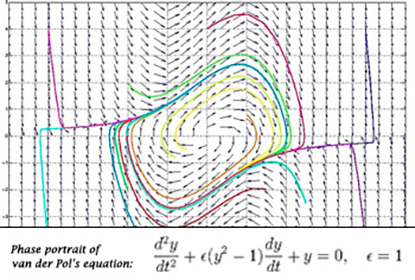Differential Equations and Dynamical Systems
Differential equations and dynamical systems (DEDS) are important tools to describe and understand changes in the real world. The theories and applications of DEDS can be traced back at least to the ancient Greeks, but it is first recognizable to modern eyes in the work of Isaac Newton. Early achievements in this area were mainly in physics. However, the need to analyze changes is pervasive throughout science. Thus, the modern theories of DEDS have grown from Newton's time to find an important place in a much wider range of disciplines, extending from mathematics, physics and information theory to biology, ecology, financial forecasting, engineering and even artificial intelligence.
Not only has its scope sharply grown, but the theories themself have undergone a revolution since the 1960's. In particular, the discovery of chaos has led to a new era in how we think about change and predictability in our world. What was a sedate 300-year-old field has erupted into an exciting new research frontier that has shaken up all of modern science to its foundations. It is an exciting time to be a part of the new discoveries being made in this field both in basic theories and in terms of applications.
The current research of applied differential equations and dynamical systems in our department includes both theoretical study and practical applications. Dynamical systems may be represented by ordinary differential equations, partial differential equations, delay differential equations, stochastic differential equations, and differential equations. They can be discrete, continuous or impulsive systems, or combinations of these.


